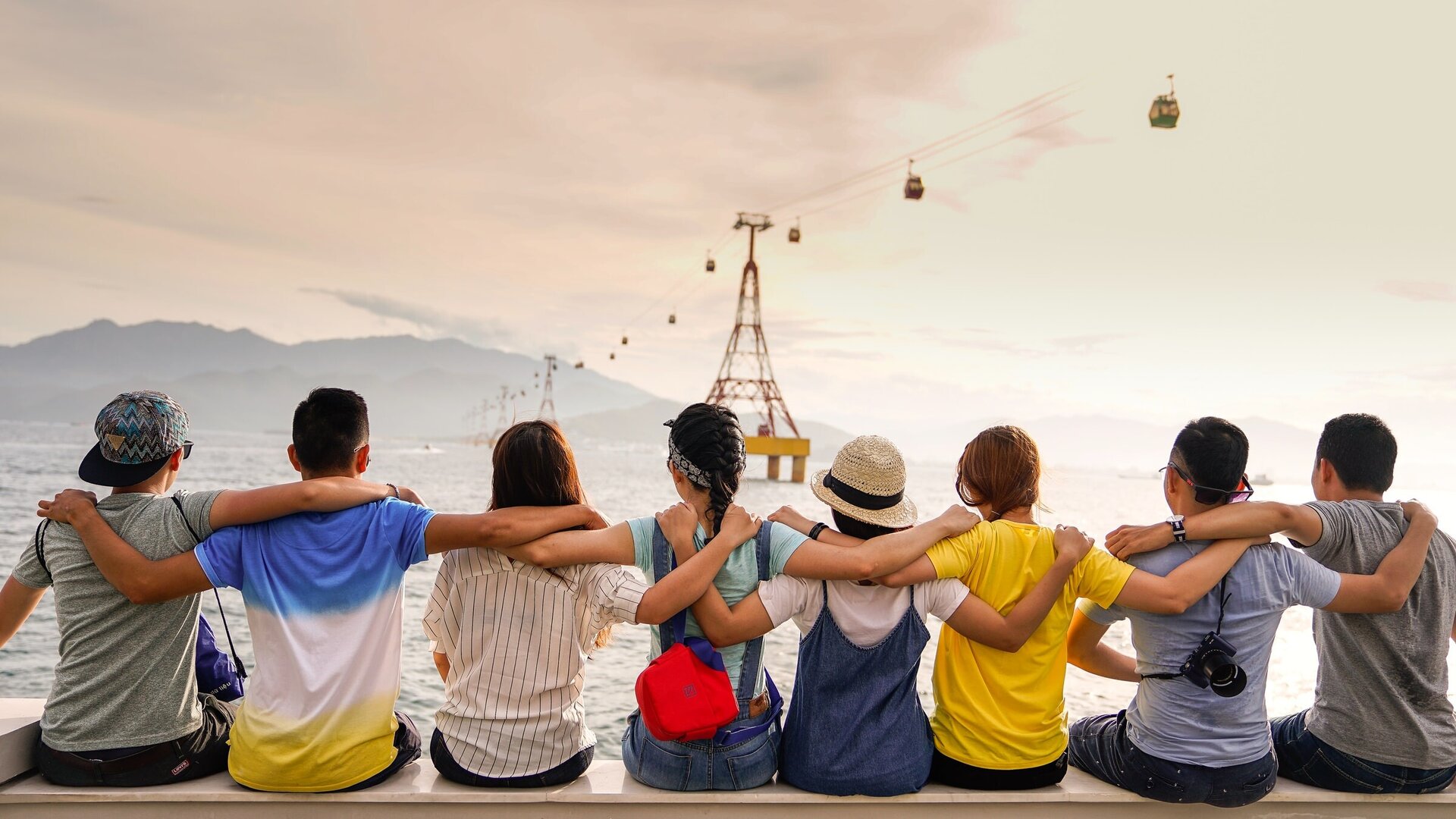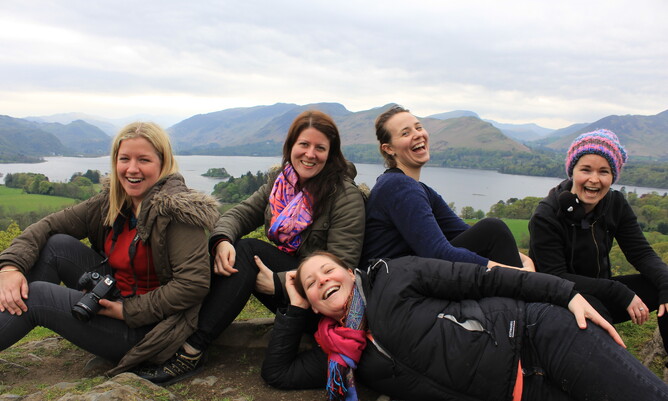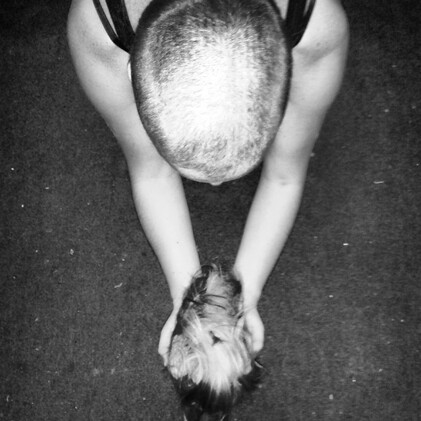Are you fit, healthy and looking after yourself?
Do you drink? Do you like having a good time?
Do you like to travel?
Are you getting enough sleep? Do you exercise often?
As a 27 year-old in 2013, my answer to all of those questions was, ‘yes’.
I felt great. I was in the best headspace of my life. I was on my OE and I had been living in London for 4 months. I'd been to 12 countries and had plenty more trips planned that year.
I was working as a relief teacher in schools across the city and was making a good living. I was able to limit costs by living with friends and dossing (which involved sleeping on couches and room sharing). There was always something to go and see – galleries, museums, raves, theatre, and of course, all the famous landmarks.
I was feeling pretty tired on a trip to Croatia and Bosnia, so I cut the trip short and headed back to London. I put it down to travelling too much, not having a specific routine and not getting enough sleep.
Just before my period my breasts were so painful I could barely touch them. I had never ever had pain like this and couldn't sleep or lie on my stomach. It was quite sudden and did not go away. The pain remained constant.
With the pain I noticed that the surface of my right breast was normal, but my left one was very veiny and looked very different to the right. When I squeezed my right breast it was soft and squishy but the left felt like it had a hard ball inside it. It felt quite gristly. I didn't know what it was but I knew it wasn't normal. Was the mass a lump? I wasn't sure because I thought a lump was meant to be like a pea or a marble on the surface of the skin – that is what I had read. What I could feel was on the inside and it was not normal.
It took me two weeks to get an appointment to see a GP. I'd never really examined my own breasts, let alone had someone do it for me. I was referred pretty quickly and the form that was sent to the closest hospital had a box ticked that said "suspected cancer".
I was on a trip in Austria when I got the call from the hospital for the appointment to see a specialist. That appointment involved another examination of both breasts and then I was sent for an ultrasound where I was shown what was inside my breast. It was a 3cm mass. On the screen it was round and was like a big black spot. It looked like a squash ball. The radiologist said to me, "We need to take a sample of that because I don't know what it is". I had local anaesthetic and a core biopsy then and there.
Over the course of the next week with a very bruised boob, I considered the worst-case scenario and mentally prepared myself for that. “Cancer doesn't hurt,” a friend told me. “You are too young, it's probably nothing,” said another.
A week later I was told, "I am sorry to tell you the test results have come back showing cancer".
So there I was. In London, on the adventure of a lifetime and I had just been diagnosed with Breast Cancer. It was aggressive and I was told that I had caught it just in time.
I had a six-week window to have fertility treatment to save eggs.
I had to prove that I was allowed to stay in the UK for treatment and had to cancel all my summer travel plans, which included travelling around Turkey, Greece and Italy. I started chemotherapy three days before my 28th birthday.
The chemotherapy was used to shrink the mass from 3cm to 0.8cm. Eventually, it could be removed with a lumpectomy so I was fortunate to keep my breast.
I also had radiation. The tumour was an aggressive sub-type of Breast Cancer called HER2+ so I needed to have a special drug called Herceptin to treat it. The treatment time was 15 months - most of my OE.
I opted to stay in London for all my treatment and was lucky enough to work pretty much fulltime as a teacher and was still able to travel extensively across Europe and through the USA on my way back to New Zealand. I made amazing friends and still lived as if I wasn't sick.
I learnt a lot from this experience. I learnt a lot about myself and a lot about the systems we trust to educate us about these things. I knew nothing about cancer – yet it affects so many of us; if not directly then through people close to us.
I have been back in New Zealand just over a year and a half and have been working hard at establishing more prevention and awareness education about cancer for young Kiwis. I have set up an organisation called The WELLer Network which focuses on connecting with young New Zealanders to deliver life-saving messages.
Our aim is to get out in communities and connect with young people at a grass roots level where we will be able to foster and support the healthy conversations that can save lives. I have been out into schools in the wider Auckland area and connected with over 7,500 students and the response has been overwhelming. I am excited to be engaging young people in something that affects so many of us.
The main lesson I’ve learnt? Look after your health. You only have one body, so look after it. Eat well, stress less, exercise more, surround yourself with good people and be kind to yourself. Make the most of every day and know your body.
Things to note
- Know what normal looks and feels like for you.
- It is recommended that you check your breasts once a month around the same time every month in order to notice any changes.
- The area that you need to check is from your collarbone down to the base of your sternum - which is the bone in the middle of your rib cage and then out in to your armpits.
- Breast tissue covers this whole area it's not just your boobs you need to be keeping an eye on.
- If you are not sure about something that isn’t normal, make a doctor’s appointment, or tell an adult or someone you can trust and they will support you to see a medical professional as soon as possible. If you are not sure of a doctor’s opinion, ask for a second one and do not be told you are too young – cancer does not and will not discriminate. It may be relatively rare for young people to get breast cancer, but it does happen.
- Early detection is key.


